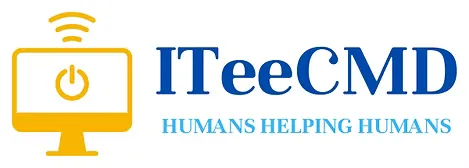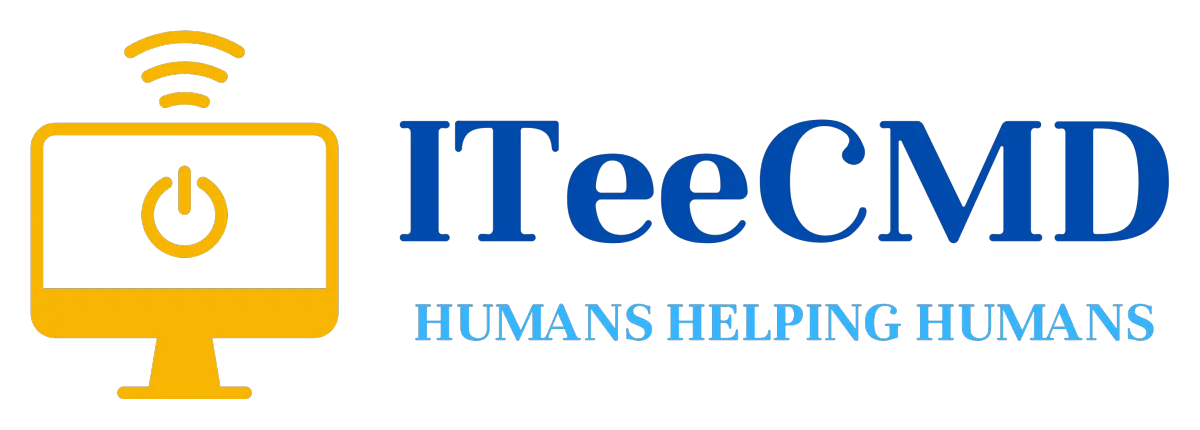Our Latest Blog Posts!

How to Stop Playing by Other People’s Rules
How to Stop Playing by Other People’s Rules | Context, Creativity & Self-Reflection
Leadership has become oversaturated in today's world, with countless books, courses, and voices all claiming to have the definitive answer to what makes a good leader. The reality is far more nuanced than these one-size-fits-all approaches suggest. Just as we wouldn't expect a single type of light to work in every situation, leadership must adapt to context, people, and circumstances.
We often underestimate the complexity of human beings in professional settings. While we would never hand someone multiple complicated pieces of equipment without proper training and expect them to figure it out, we routinely do this with managing people. Each person brings unique experiences, perspectives, and capabilities that require different approaches. The key lies not just in leading others, but in developing self-leadership first - understanding who we are and how we navigate our own lives before attempting to guide others through theirs.
Key Takeaways
Leadership effectiveness depends entirely on context, people involved, and specific situations rather than following universal best practices
Humans are infinitely more complex than any equipment we work with, yet we often treat people management as less technical than machinery
Self-leadership and personal understanding form the foundation for effectively connecting with and guiding others
Matt Digeronimo's Background
Naval Service and Nuclear Engineering Career
We spent most of our career in highly technical and high-risk environments. Our journey began with nuclear engineering and progressed to serving aboard nuclear submarines in the United States Navy. During this time, we specialized in electrical power production systems.
Submarine duty provided us with unique insights into human behavior under extreme conditions. We observed crew members at their best and worst moments, with nowhere to escape for months at a time. This environment became our laboratory for studying conflict resolution, personal development, and leadership dynamics.
Key aspects of our naval experience:
Nuclear submarine operations
Electrical power production systems
Extended deployments with the same personnel
High-stakes decision making in confined environments
Career Evolution to Operations Management
After completing our naval service, we transitioned into the manufacturing sector. We currently serve as Vice President of Operations at ShMCO Industries. This role builds upon our technical foundation while expanding into executive leadership responsibilities.
Our post-Navy career has focused on culture transformation and operational excellence. We have applied the discipline and precision learned in military service to civilian manufacturing operations. The transition from military to civilian leadership required adapting our approach while maintaining core principles of accountability and excellence.
Literary Work and Public Speaking Contributions
We have authored multiple books that diverge from traditional leadership content. Our recent publications include "Actualization" and "Suck," which explore self-reflection and personal development rather than conventional leadership advice.
Our writing approach has evolved significantly over time. Initially, we focused on straightforward leadership topics. However, we recognized the oversaturation in the leadership market and shifted toward more personal and introspective themes. We believe the leadership space has become commoditized, with too many similar perspectives flooding the market.
Our current focus areas include:
Personal development through self-reflection
Mentoring emerging leaders
Public speaking on resilience and purpose
Challenging conventional wisdom in leadership thinking
We actively engage in public speaking and maintain an online presence where we share insights about personal growth and organizational development. Our approach emphasizes authenticity over popular opinion, focusing on what we believe needs to be said rather than what audiences might want to hear.
How My Leadership Views Transformed
Technical Foundation Origins
My career began in highly technical environments. Nuclear engineering formed my early professional identity. Nuclear submarines demanded precision and strict protocols.
After leaving the Navy, I transitioned into manufacturing and electrical power production. These fields reinforced structured approaches to problem-solving. Math and science dominated my educational path from high school onward.
The accolades came naturally in technical subjects. Creative pursuits received less recognition despite my lifelong attraction to them. This pattern shaped my initial career trajectory toward engineering disciplines.
Insights from Intense Operating Conditions
Submarine duty provided unmatched opportunities to study human behavior. Crew members lived in confined spaces for months without escape. I observed people at their absolute best and worst moments.
The environment revealed authentic personalities under pressure. Some individuals flourished while others struggled significantly. Conflict arose regularly, followed by various resolution approaches.
Key observations included:
People's true character emerges in isolation
Extended proximity creates unique interpersonal dynamics
Individual responses to stress vary dramatically
Leadership effectiveness depends entirely on context
I documented these behavioral patterns extensively. The submarine became my laboratory for understanding human nature. These experiences fundamentally changed how I viewed leadership challenges.
Movement Toward Creative Expression
My content creation initially focused on traditional leadership topics. Professional leadership became my declared specialty. I treated it as a distinct craft requiring dedicated study.
This year marked a significant shift in my approach. I began expressing ideas that felt authentic rather than expected. The leadership market appeared oversaturated with repetitive advice.
Two recent books reflect this evolution: Actualization and Suck. Both departed from conventional leadership frameworks. They explore self-reflection and personal development instead.
Creative pursuits now include:
Previous Focus Current Direction Technical leadership content Authentic self-expression Structured management advice Personal growth exploration Industry-standard approaches Unconventional perspectives
The transition allowed me to address topics I genuinely wanted to discuss. Leadership advice had become commoditized and lost its distinctive value. My creative side demanded recognition after years of technical dominance.
Human complexity fascinated me more than equipment troubleshooting. We assign people to manage multiple complicated individuals without proper training. No one would handle sophisticated machinery with such minimal preparation.
Transforming Leadership Understanding in Today's World
Navigating the Oversupply of Leadership Content
The leadership advice market has reached a saturation point that diminishes its overall impact. We see countless books, articles, and resources flooding the space with similar concepts and approaches. This abundance creates a commodity effect where leadership guidance loses its distinctive value.
The overwhelming volume of leadership content has diluted what authentic leadership truly represents. We find ourselves swimming in generic advice that fails to address specific challenges or unique situations. Many professionals now tune out leadership discussions because they appear repetitive and lack fresh perspectives.
Current State Impact on Organizations Oversaturated market Reduced engagement with leadership development Generic advice Poor application to specific situations Repetitive content Decreased interest in leadership growth
Leadership's Dependence on Specific Situations
Effective leadership operates more like choosing the right tool for a specific job rather than applying universal principles. We must recognize that asking "what makes a good leader" resembles asking "what makes a good light" - the answer depends entirely on what the situation requires. A flashlight serves different purposes than a spotlight or candle.
Contextual factors that shape leadership approach include:
Team composition and individual personalities
Project objectives and success metrics
Timeline constraints and resource availability
Organizational priorities and cultural dynamics
The best leaders adapt their style based on who they work with and what they aim to accomplish. We cannot apply the same leadership methods across different teams, projects, or circumstances and expect consistent results. Each situation demands its own leadership response.
Priority considerations affect leadership decisions:
Getting exceptional project results versus developing team members
Meeting immediate deadlines versus building long-term capabilities
Individual performance versus collective team growth
Embracing Genuine Self-Expression in Leadership
We achieve better leadership outcomes when we move away from saying what people expect to hear toward expressing authentic insights. The shift from conventional leadership messaging to original thinking creates more meaningful connections and impact.
Leadership authenticity requires stepping outside established patterns and exploring perspectives that reflect genuine experience and observation. We find greater success when leaders share their unique viewpoints rather than recycling familiar concepts.
Elements of authentic leadership expression:
Personal experience integration - Drawing from actual situations and challenges
Original angle development - Finding fresh approaches to common problems
Individual voice cultivation - Speaking from personal conviction rather than industry standards
The complexity of human beings demands that we treat leadership as a nuanced craft rather than a standardized process. We would never give someone multiple complicated pieces of equipment without proper training, yet we routinely expect leaders to manage diverse individuals without recognizing their unique complexities.
Each person brings different experiences, talents, abilities, and perspectives that require individualized leadership approaches. We must acknowledge that leading people requires more sophistication than managing technical systems because humans operate with far greater variability and complexity.
Understanding Human Complexity
Individual Uniqueness in Every Person
Every human being we encounter brings something completely different to the table. We see distinct experiences, talents, abilities, and perspectives that make each person truly one-of-a-kind.
No two people approach problems the same way. Their backgrounds shape how they think and respond to situations. We witness this diversity daily in our teams and organizations.
Key aspects of individual uniqueness:
Personal experiences that shape worldview
Natural talents and developed skills
Cultural and educational backgrounds
Communication preferences
Problem-solving approaches
People Versus Equipment: A Critical Distinction
We believe humans are significantly more complicated than any piece of equipment we work with. This isn't even debatable - people operate at a completely different level of complexity.
Consider this reality: we would never give someone ten complicated pieces of equipment that are each different from each other and say "go figure it out." Yet we do exactly this with people all the time.
Equipment People Predictable responses Variable reactions Manual instructions available No operating manual exists Standard troubleshooting Unique solutions needed Consistent performance expectations Individual capabilities vary
Each person requires different approaches. We cannot apply the same methods and expect consistent results across our teams.
Managing Teams with Diverse Personalities
Leading diverse groups presents unique obstacles we must navigate carefully. We face the challenge of understanding multiple personality types simultaneously.
Primary challenges we encounter:
Communication barriers - People process information differently
Motivation differences - What drives one person may not inspire another
Conflict resolution complexity - Each situation requires tailored approaches
Performance expectations - Individual capabilities vary significantly
We must adjust our leadership style for each team member. The approach that works with one person may completely fail with another.
Contextual leadership becomes essential. Every situation demands different responses based on who we're working with and what we're trying to accomplish. Our priorities also matter - developing people requires different strategies than completing urgent projects.
The timeline affects our approach too. Rush situations call for different leadership methods than long-term development initiatives.
Human complexity means we cannot rely on standard procedures or best practices alone. We need flexibility and adaptability in every interaction.
Personal Development and Self-Direction
The Power of Self-Examination
We recognize that self-reflection serves as a fundamental tool for understanding our motivations and behaviors. Our experiences shape who we become, and examining these experiences allows us to identify patterns in our responses to different situations.
The complexity of human nature demands that we take time to understand ourselves before attempting to guide others. We must acknowledge that each person brings unique perspectives, talents, and experiences to every interaction.
Self-examination helps us move beyond surface-level understanding. We can explore not just what we do, but why we do it, creating a foundation for authentic growth.
Self-Direction as a Foundation
We cannot effectively guide others without first establishing our own internal compass. Leading ourselves requires understanding our values, motivations, and decision-making processes.
Our ability to direct our own actions directly influences how others perceive and respond to us. When we demonstrate clarity in our personal direction, we model the behavior we want to see in those around us.
Key Elements of Self-Direction:
Personal accountability for our choices and outcomes
Consistent self-assessment of our progress and setbacks
Authentic decision-making aligned with our core values
Self-direction means recognizing that we are each unique individuals who require different approaches to reach our potential. We cannot apply one-size-fits-all solutions to our personal development.
Effects on Individual and Career Development
Our commitment to personal development creates ripple effects across all areas of our lives. When we understand ourselves better, we make more informed decisions about our relationships and career paths.
Professional growth becomes more intentional when we align our actions with our authentic selves. We stop chasing external validation and start pursuing meaningful progress.
Personal Impact Areas:
Area Effect Relationships Improved communication and understanding Career choices Decisions based on values rather than expectations Daily habits Actions that support long-term goals Stress management Better responses to challenging situations
The journey of self-discovery often leads us away from conventional paths. We may find ourselves exploring interests and abilities that others overlooked or discouraged earlier in our lives.
Our professional identity expands when we embrace multiple facets of who we are. Technical expertise can coexist with creative expression, and analytical thinking can complement intuitive understanding.
Address
2618 San Miguel Drive
Newport Beach, CA, 92660
Tel: 949-257-6998
Address
Newport Beach, CA, 92660
Tel: 949.257.6998
Follow Us
© 2025 all rights reserved. Created by Growth Generators. Privacy | SMS Disclosure.

